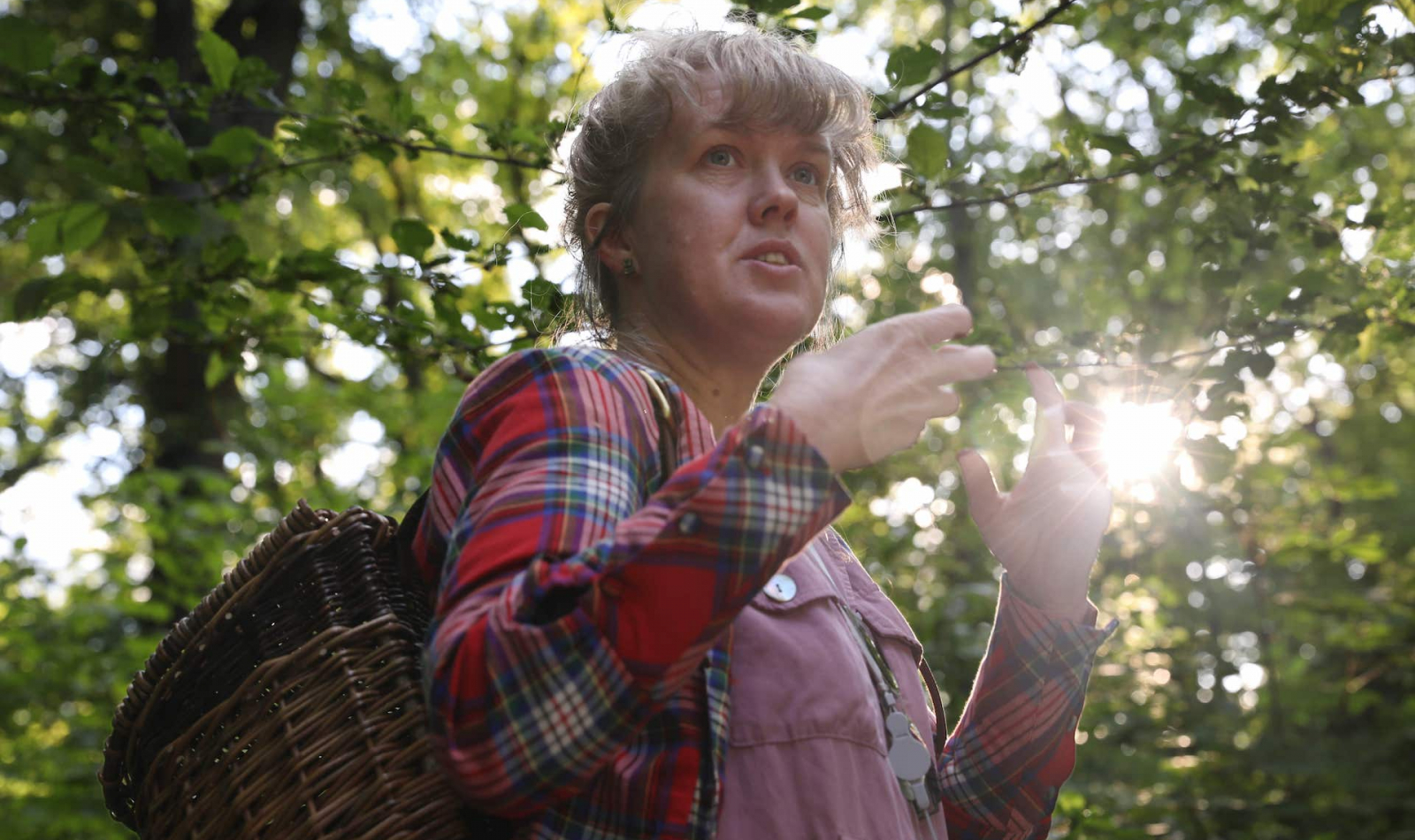Natasja English, or Tash as she goes by, is as colorful as the flowers and herbs with which she works. Australian born and raised, Tash cultivated a strong connection to nature from early in her childhood. After a career in fashion (which explains her great sense of style), she wanted to reconnect with her roots and pursued an education in herbalism. This led her to finding a garden space just outside of Berlin in Strausberg, where her love of foraging started to grow.
Tash offers workshops to teach others how to gather plants from their local environments, and in doing so, offers us another layer of connection with nature. “We’re never disconnected from nature, we are nature. We just need to learn to reconnect with our roots, that we sometimes forget about.”
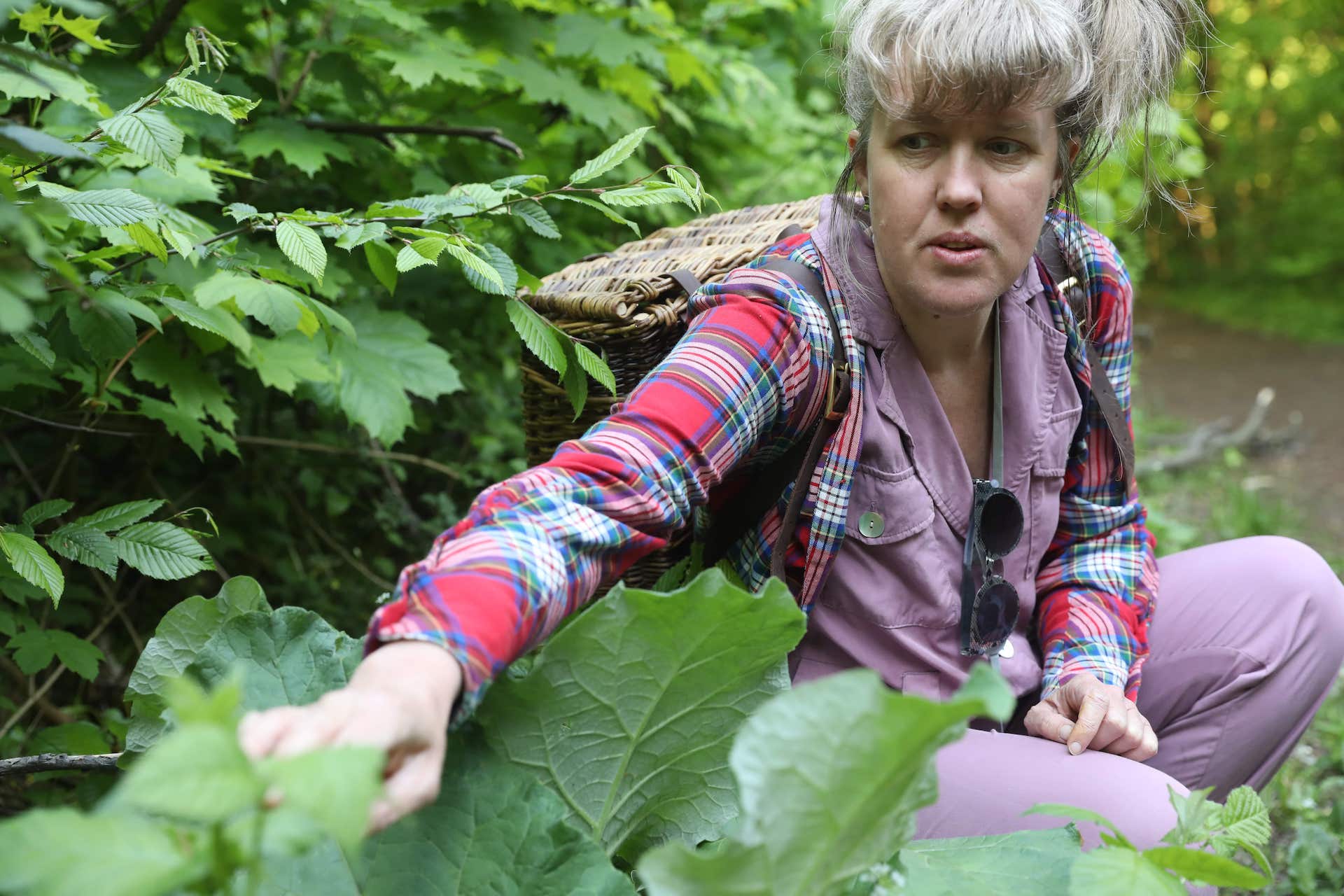
“We’re never disconnected from
nature, we are nature."
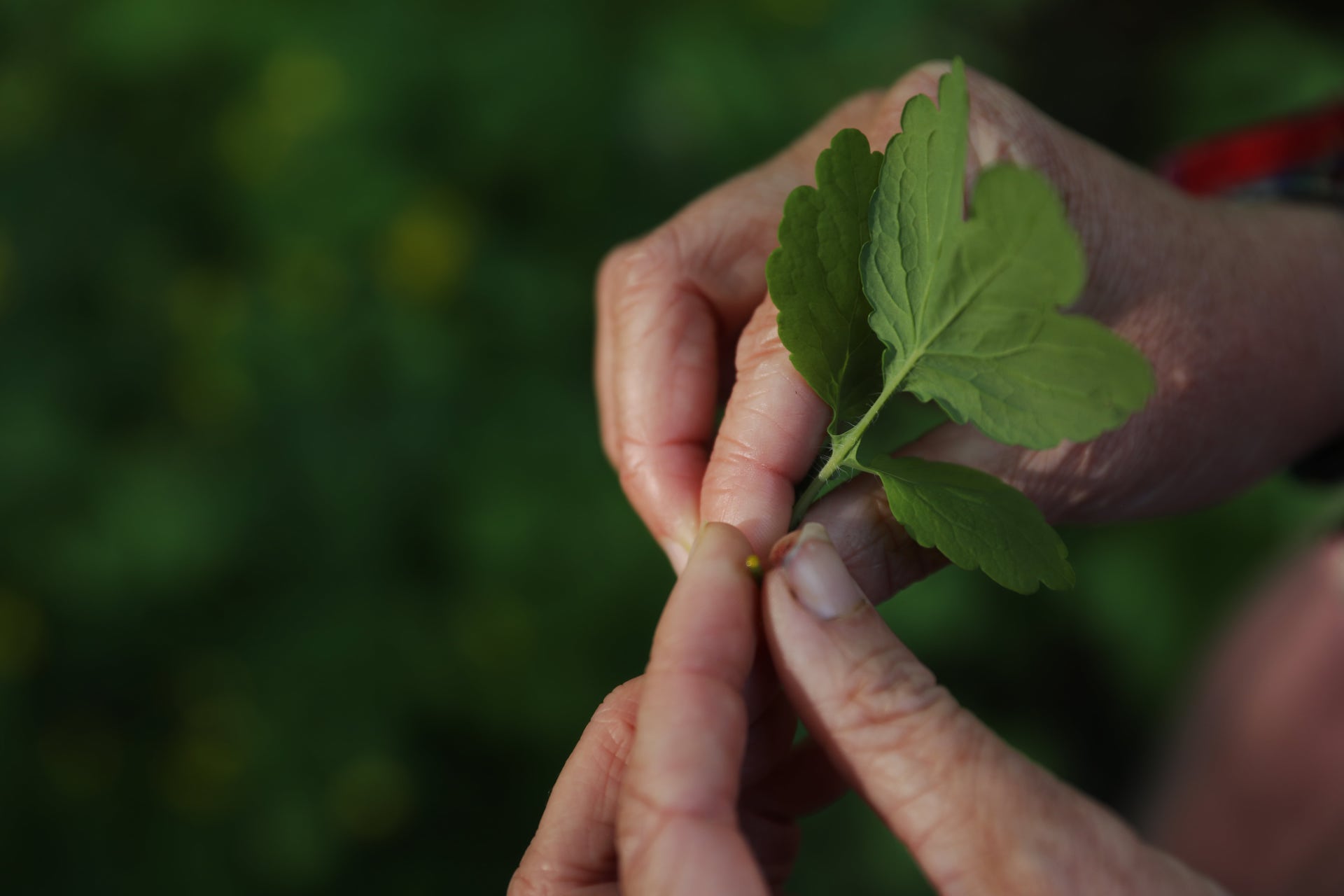
A workshop with Tash is a hands-on experience in every sense. The afternoon we spent with her happened to be when the Few-Flowered Leek was just finishing its season, carpeting the entire forest floor. As we learned, it’s an invasive plant and that was obvious by the abundance of it everywhere, including the air; the entire forest smelled of leek.
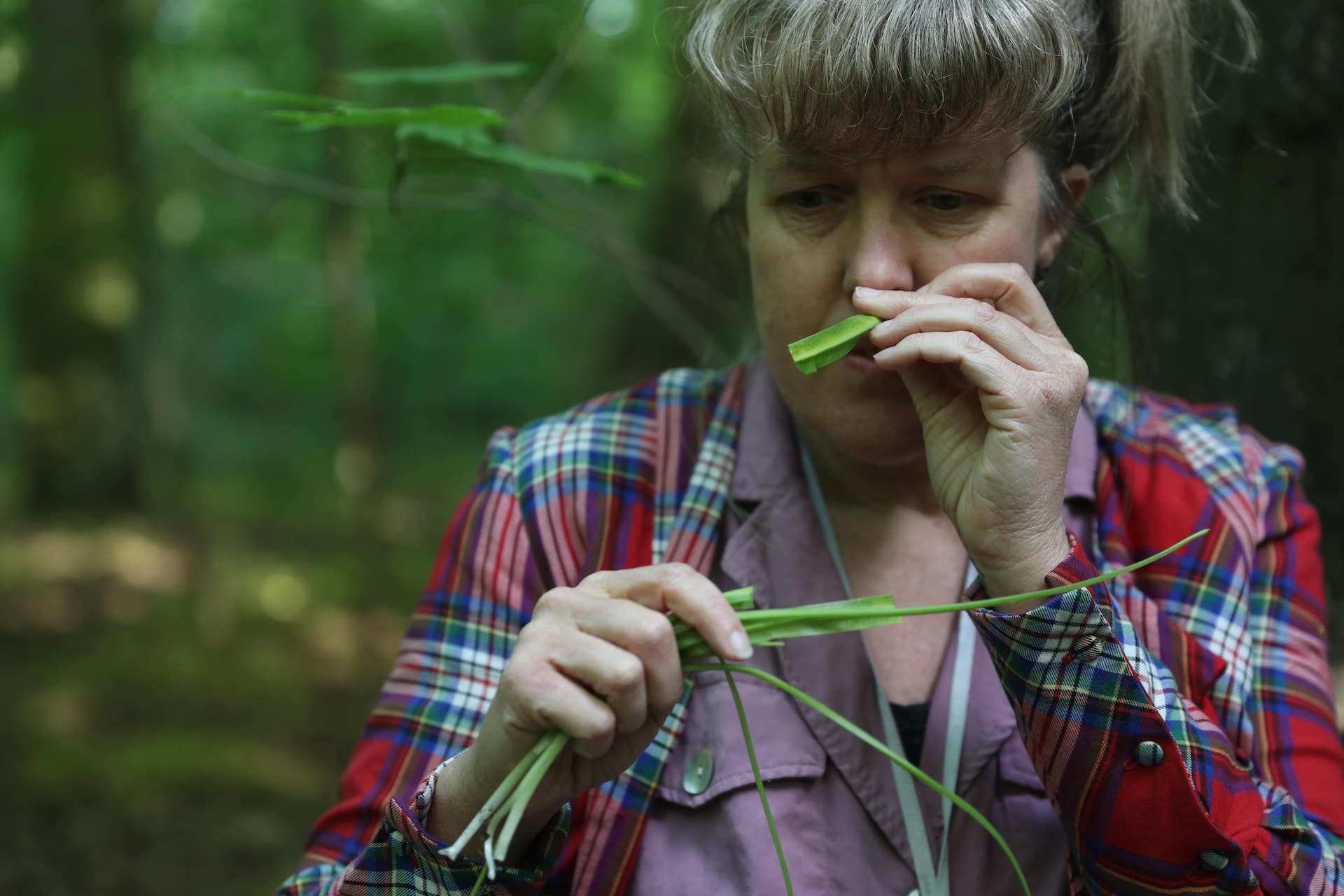
Tash teaches you about every aspect of a plant: Its seasonality, how to use different elements of the plant - the leaves, the roots, the seeds, the liquids. She teaches you to really know it, how it feels in your hands, how it smells, how it tastes. And of course, she teaches you how to best use it to its fullest potential. Once you’ve collected your harvest, she then instructs you on how to turn your forest findings into foods, medicines, tinctures, infusions, and other edibles.

"Foraging should be a reciprocal give and take between you and nature.”
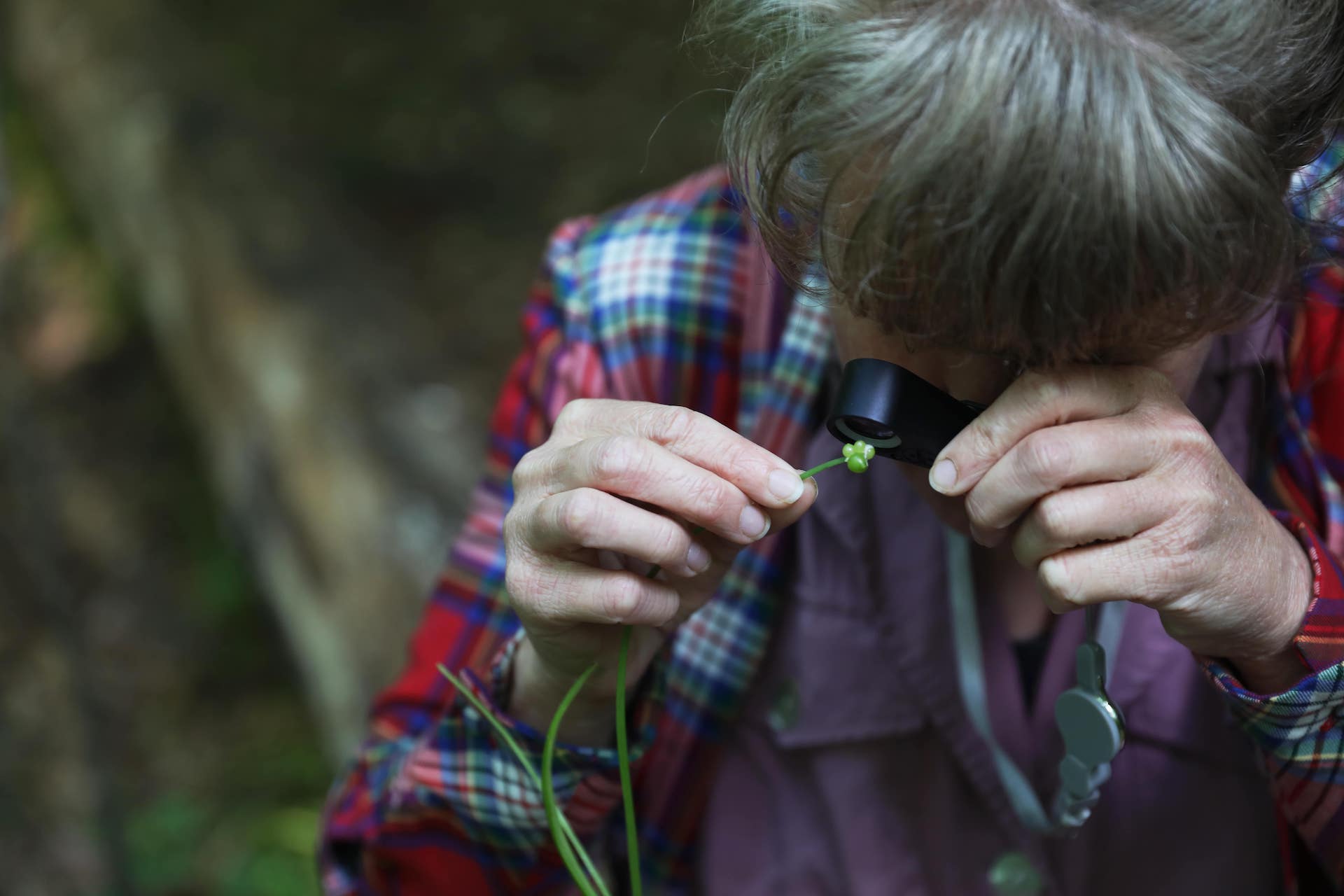
Since foraging has become quite popular recently, Tash offers a few things to keep in mind before heading out to your local forest. First and foremost, before you even go outside, educate yourself on the rules of the land and the local nature spots. Know if you’re allowed to forage in a particular area and if so what you’re allowed to forage. Learn what plants are poisonous, or what plants might be endangered. She encourages everyone to forage with someone who is an experienced professional for the first few times.
In her workshops, participants also learn how to collect plants from the wild in a sustainable, regenerative way. Learning about the land and how to give back to it is just as important as learning what it can give to us. This is a key aspect to her approach: fostering a respectful and mutually beneficial relationship with nature. “Don’t pick plants where there are only a few. If there’s only one, leave it. Don’t pick the first and don’t pick the last. Don’t think of it as going to a supermarket, but be sure to always give back to nature. Foraging should be a reciprocal give and take between you and nature.”

